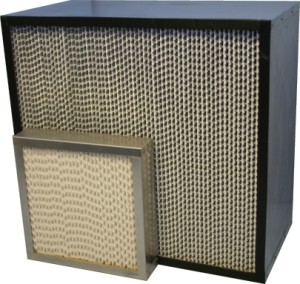 Most homeowners think that air pollution is something that happens outside their homes. However, the reality is, most indoor spaces are more polluted than the outdoors. Dirt, debris, dust mites and pollen from the outside environment find their way into the indoor space and irritates the homeowners especially those who are asthmatic.
Most homeowners think that air pollution is something that happens outside their homes. However, the reality is, most indoor spaces are more polluted than the outdoors. Dirt, debris, dust mites and pollen from the outside environment find their way into the indoor space and irritates the homeowners especially those who are asthmatic.
The other mistake committed by many homeowners is to use an ordinary vacuum cleaner for sucking in the particles and dust. These vacuum cleaners instead of cleaning the dirt just rearrange it. This is where HEPA filters come in to give you a clean indoor space not only for you but also your family.
How HEPA Filters Trap Dirt and dust
HEPA means high efficiency particulate air. HEPA filters are commonly fitted in vacuum cleaners and use two different mechanisms to rid air of any particles. The first mechanism consists of one or more outer filters which work like sieves to stop the larger particles of hair, dust and dirt. Inside these filters are constructions which resemble folded paper that is designed to trap smaller particles.
The paper usually comprises extremely dense glass fibers which catch dust particles as they pass through it. At very high speeds, some particles get caught and trapped as they smash into the fibers while others snag on these fibers as they try to brush by. At lower speeds, some dust particles wander about randomly around the filter and in the process get stuck in the fibers. These mechanisms enable HEPA filters to catch both the larger and the smaller air particles.
According to the United States National Institute for Occupational Safety and Health, HEPA filters can trap 99.97% of dust particles with a diameter of 0.3 microns. So that you have an idea of the precision of these filters, a micron is one millionth of a meter. A typical human hair measures 50 to 150 microns in diameter which means a HEPA filter can be able to trap dust and other particles that are a several hundred times thinner than human hair.
HEPA filters are also very hygienic because they stop mold spores as well as viruses and some bacteria from passing through. Originally, these filters were developed by the nuclear industry to help in cleaning radioactive and other dangerous particles. Today, HEPA filters are used in factories and workplaces particularly in environments where dust is produced in the course of the manufacturing process.
When buying a HEPA filter, you need to be careful so that you get the real deal.Ensure the filtration is genuine by checking the particulate size the manufacturer has quoted. Avoid descriptions such as HEPA type or HEPA like because most of these are meaningless and often point to fake HEPA filters. In case you want guidance, contact a HVAC professional.